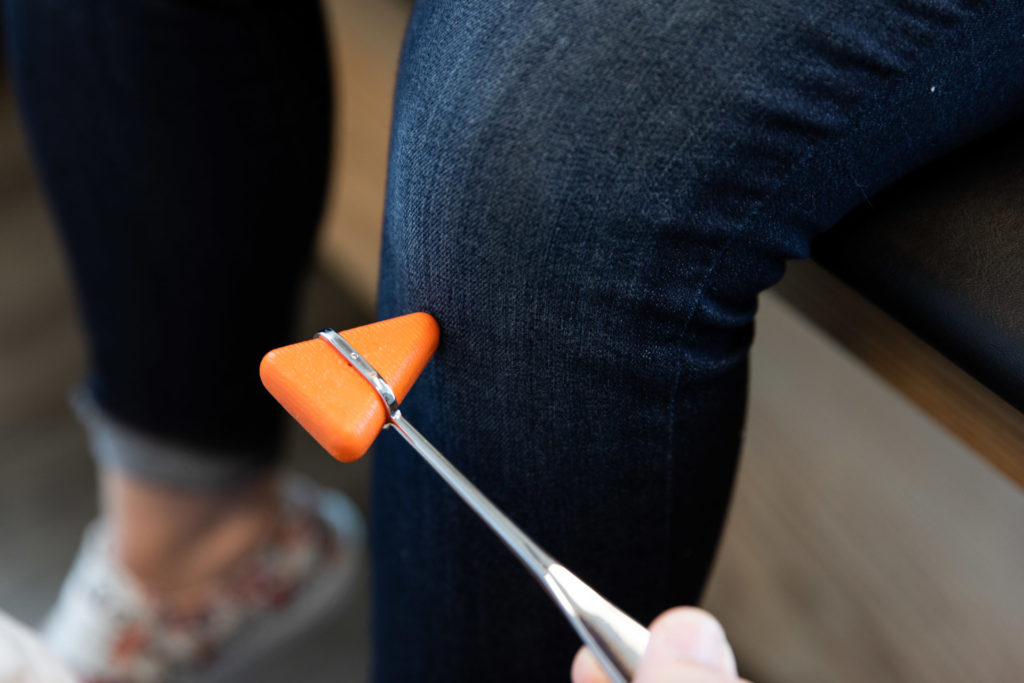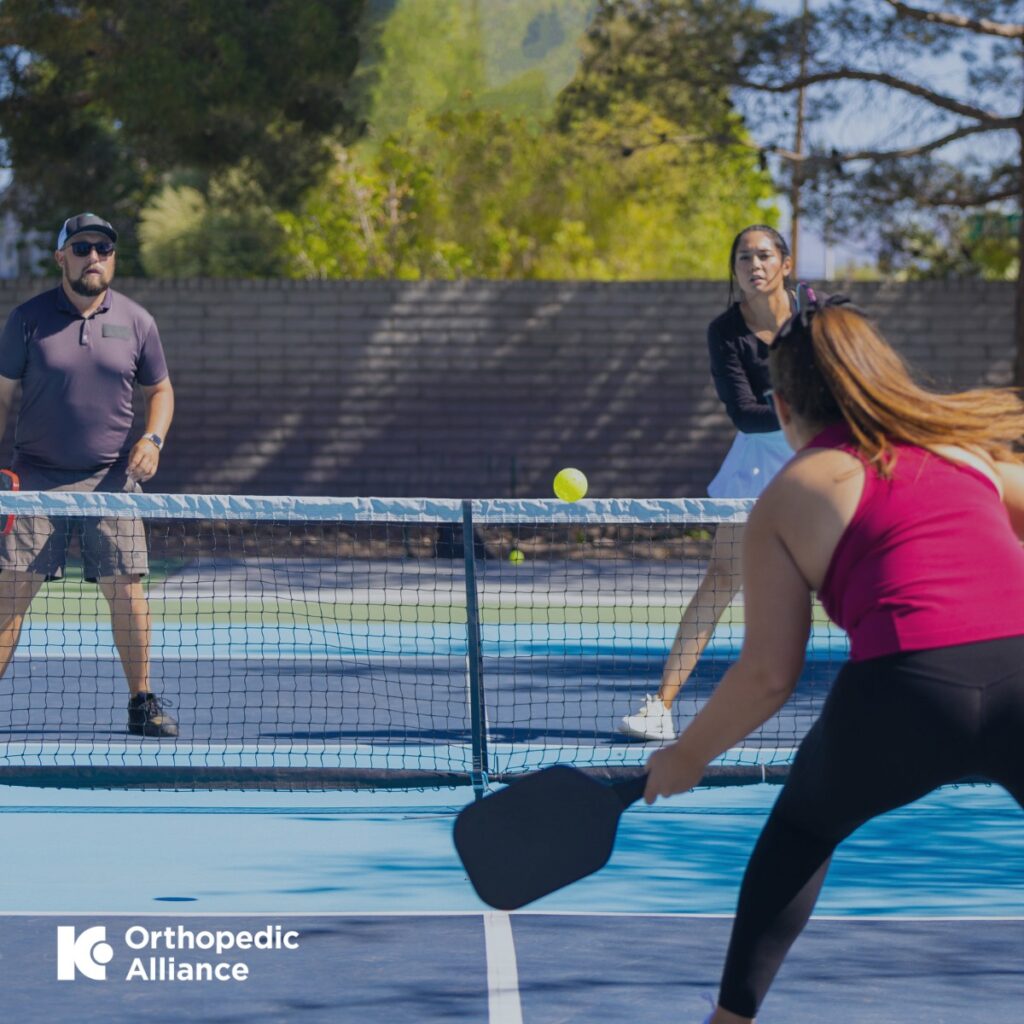
 Knee osteoarthritis can be a pain in the patella.
Knee osteoarthritis can be a pain in the patella.
It is estimated that when walking, we exert 4 times the amount of body weight we carry on our knees. So, if a person weight 100 pounds, that’s about 400 pounds of pressure on the knee joints.
It’s no surprise then, that knees—although they are a weight-bearing joint—can wear out quickly as we age.
This wear down occurs when the protective cartilage that covers the ends of the bones of the femur, tibia and kneecap start to deteriorate, and that is called knee osteoarthritis. This is also called degenerative joint disease, or “bone-on-bone” arthritis.
We see this easily on X-Ray when there is loss of joint space in the medial, lateral, or patellofemoral (where the kneecap rides on the femur) components of the knee.
More About Arthritis in Kansas City
The average arthritic patient is over 50. However, knee arthritis can also effect a younger population.
Arthritis is typically caused by normal wear and tear, but obesity and excessive pressure on the joints can exacerbate symptoms. The key symptom of arthritis in Kansas City is pain that increases during activity (such as climbing stairs) and is alleviated by rest and loss of range of motion.
Patients may also experience swelling, a grinding sensation, warmth of the joint, or stiffness. Once diagnosed with knee osteoarthritis in Kansas City, a patient can be treated in a variety of ways, ranging from very conservative treatment to a total knee arthroplasty.
Relief from Knee Osteoarthritis

At KCOA, we always encourage, first and foremost, a healthy lifestyle, as obesity is one of the major causes of osteoarthritis.
Therefore, weight loss and exercise alone can lessen the pain of arthritis. Unfortunately, though, these lifestyle changes alone will not regenerate your joint space.
How we treat knee osteoarthritis in Kansas City
Another conservative treatment we try is simple over-the-counter anti-inflammatories (NSAIDS) such as ibuprofen, Aleve, Advil or Motrin. If this method still does not control the pain, or patients are not able to take NSAIDS for other health reasons, there are also topical anti-inflammatories we can recommend.
Another modality of treatment for knee osteoarthritis in Kansas City is a cortisone injection into the knee. Cortisone works to calm the inflammatory factors of arthritis and can provide months of pain relief.
There are alternative injections (called viscosupplementations, or hyaluronic acid) which we use to help the knee joint glide more smoothly. If you’ve ever heard of “rooster comb injections,” this is what you’ve heard about. And no, there is no longer actual rooster comb in the injection!
Both of these injections for knee osteoarthritis in Kansas City can give anywhere from 1 month to 1 year of pain relief. It is important to note that injections are not successful for everyone, and there is no way to predict how well a patient will respond to a particular injection.
If all of these treatment options fail, then we move toward the more aggressive end of the spectrum and begin the process of discussing a total knee arthroplasty, or a knee replacement. This procedure entails replacing the damaged cartilage with prosthetic devices to return your quality of life and hopefully completely alleviate the pain of knee osteoarthritis.
If you’re looking for relief, Kansas City Orthopedic Alliance can help.
Please contact our office with any questions you have on the diagnosis or treatment of knee osteoarthritis in Kansas City.


